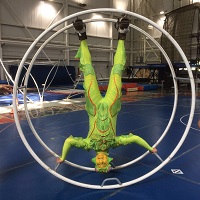What is Action Learning?
- Action Learning enables people to work on real issues that are capable of having action taken on them.
- Action Learning uses the experience and knowledge of each individual to create new knowledge.
- It provides a framework for sharing, supporting, giving feedback and challenging assumptions
- It helps each individual develop the ability to generate new approaches to existing problems.
Action Learning Process
- Asking questions to clarify the exact nature of the problem
- Identifying possible solutions
- Taking action and changing the situation.
What are the benefits?
- Leadership/management skills are developed by doing something and then understanding why it worked
- Managers can increase success by working with the expertise and insights of others
- Learning through sharing expertise and insights.
- Key leadership skills are having the time and ability to stop, reflect and learn
- Action Learning offers a formal opportunity to develop the skills of partnering and collaboration.
Action Learning Sets
- Groups of 4-8 participants
- Working on real live issues in turns
- Exploring what the Presenter thinks, feels and does
- Using questioning and co-counselling approaches
- Time to reflect and discover next steps that will make a difference.
Fundamental Values
- Being honest with oneself and others
- Respecting others and their viewpoint
- Taking responsibility for own actions.
First Steps in Action Learning
For the first set meeting:
- Be clear of the overall aim for yourself and your organisation from your participation in this set
- Think through to work with the rest of the group (are there ground rules you want to agree?)
- Have a preliminary presentation of your issue ready with thoughts the group can help you during the set
- Be ready to participate fully to support each presenter
- Consider who might be your sponsor within your organisation to help you take action on return from the set.
Core roles in an Action Learning Set
Presenter:
Each set participant selects an issue to present to the rest of the set. At each set meeting, presenters share the challenges of their issue with the group, gaining the group’s support and insights from which the presenter then decides on a course of action.
Participants:
Participants use questioning and reflection skills to help each presenter to progress their thinking. By building on other set members’ contributions all participants gain insights into other approaches and insights. Set participants challenge their own assumptions and learn from others while supporting each presenter.
Sponsor:
By identifying and working with a sponsor outside the set (such as a senior manager), participants will gain additional learning from reflecting with and ‘selling’ action to a 3rd party. A sponsor who is committed to the Action Learning process can also help to clear blockages.
Action Learning Set Rules
- All set business is confidential
- One person speaks at a time
- Really listen to each other
- Don’t make fun when someone is trying to be serious
- Aim to attend all meetings
- Ground rules can be changed by negotiation
- No phone calls at work about the project
- Switch off all mobile phones
These notes are based on work with Wendy Briner, Chris Cotton, Danny Chesterman, Jane Mann, Judith Williams and others. I would also like to acknowledge the work of Professor Reg Revans who pioneered the use of Action Learning. Let me know of any additional resources and I’ll do my best to add them.



